In today's fast-paced digital world, understanding how to effectively use technology in the workplace is more important than ever. Our new employee technology use policy is designed to help you navigate the tools and resources available while ensuring a safe, productive, and respectful environment for everyone. We believe that by setting clear guidelines, we can empower you to make the most of your technological resources. Curious to learn more about the specifics of the policy? Keep reading!

Clear Objectives and Purpose
Employee technology use policies establish guidelines for acceptable usage of organizational technology resources, such as computers, smartphones, and software applications. Clear objectives aim to protect sensitive data, ensure compliance with legal and regulatory requirements, and promote a safe and productive work environment. The purpose of these policies includes minimizing cybersecurity risks, addressing potential misuse of technology, and outlining the consequences of policy violations. By fostering a culture of responsible technology use, organizations can enhance efficiency and safeguard their intellectual property while ensuring employees understand their roles and responsibilities regarding technological assets.
Defined Scope and Applicability
The employee technology use policy outlines crucial guidelines for the use of company-owned devices and software within the workplace ecosystem. This policy applies to all employees, including full-time, part-time, and temporary staff, across all departments, such as marketing, finance, and information technology. Devices covered encompass desktop computers, laptops, tablets, and mobile phones, including any cloud-based applications utilized for business operations, such as Microsoft 365 and Google Workspace. Employees must understand the significance of compliance with this policy to protect sensitive data and maintain a secure network environment, mitigating risks associated with unauthorized access and potential data breaches, particularly in industries that handle confidential information, like healthcare or finance. Regular training sessions on this policy will ensure that employees remain informed about best practices and the latest security measures, particularly in the face of evolving cyber threats. Non-compliance may lead to disciplinary actions, underscoring the importance of adherence to these guidelines in promoting a safe and efficient workplace.
Detailed Guidelines and Rules
The technology use policy provides essential guidelines for employee responsibilities regarding workplace technology, including computer systems, mobile devices, and internet resources. Organizations must clearly define acceptable use, outlining prohibited activities such as downloading unauthorized software, accessing inappropriate websites, or sharing sensitive company information. Employees should be informed about data security measures, including the importance of using unique passwords and regularly updating them to protect data integrity. Regular training sessions, alongside periodic policy reviews, help ensure compliance and promote a culture of security awareness. Violations can lead to disciplinary actions, emphasizing the significance of adhering to these rules within the role of maintaining a secure and efficient technological environment.
Consequences of Misuse
Misuse of technology at the workplace can result in serious consequences that adversely affect both the employee and the organization. Violations of the employee technology use policy may include unauthorized access to confidential data, which can lead to data breaches compromising sensitive information, potentially affecting thousands of client records. Furthermore, engaging in inappropriate online behavior using company devices can result in disciplinary action, including termination of employment, as well as legal ramifications if any harassment or inappropriate content is distributed. Repeated offenses may lead to mandatory training sessions on proper technology use, enforcing the understanding of ethical boundaries. Additionally, any employee found to be using company resources for personal gain, such as running a side business on company time, may face financial penalties or restitution, especially if it impacts overall productivity measured through performance metrics. The organization emphasizes adherence to its technology use policy to maintain a secure and professional work environment.
Privacy and Security Measures
Employee technology use policies are essential for maintaining privacy and security within organizations, especially in digital environments. Sensitive information, like personal identification numbers (e.g., Social Security Numbers), must remain protected against unauthorized access. Policies should outline acceptable use of company devices, stipulating that employees avoid unsecured public Wi-Fi networks, which can expose confidential data (like intellectual property). Mandatory password changes every 90 days can enhance security, along with two-factor authentication methods, which provide an additional verification layer. Regular training sessions on phishing attacks and social engineering tactics are crucial, helping employees recognize potential threats and understand reporting procedures. Additionally, data encryption protocols for sensitive files stored on devices minimize risk during data breaches, reflecting a commitment to safeguarding both employee and company information. Compliance with legal frameworks, such as the General Data Protection Regulation (GDPR), reinforces organizational accountability in data management.

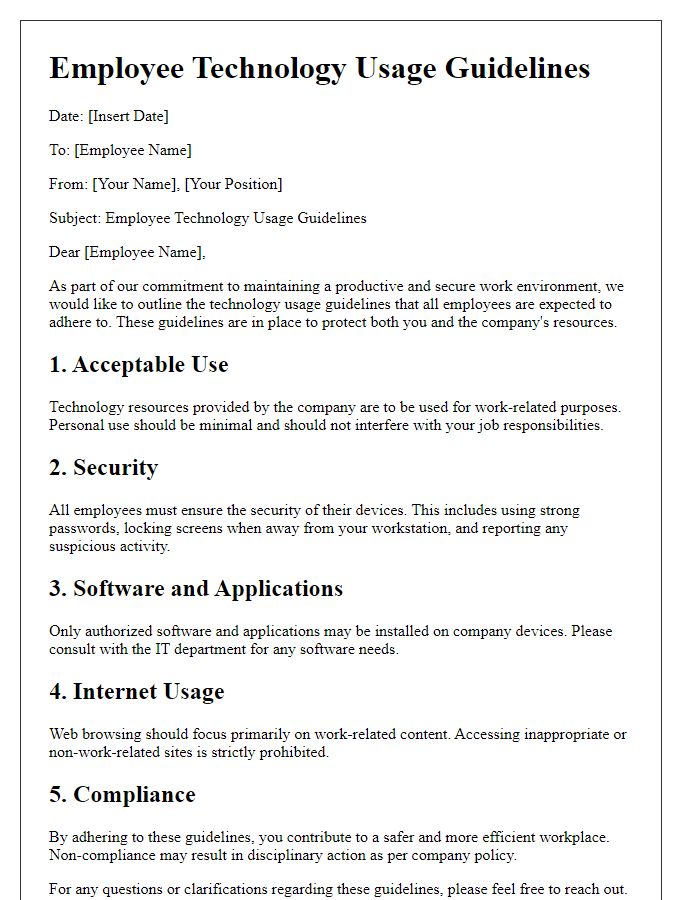
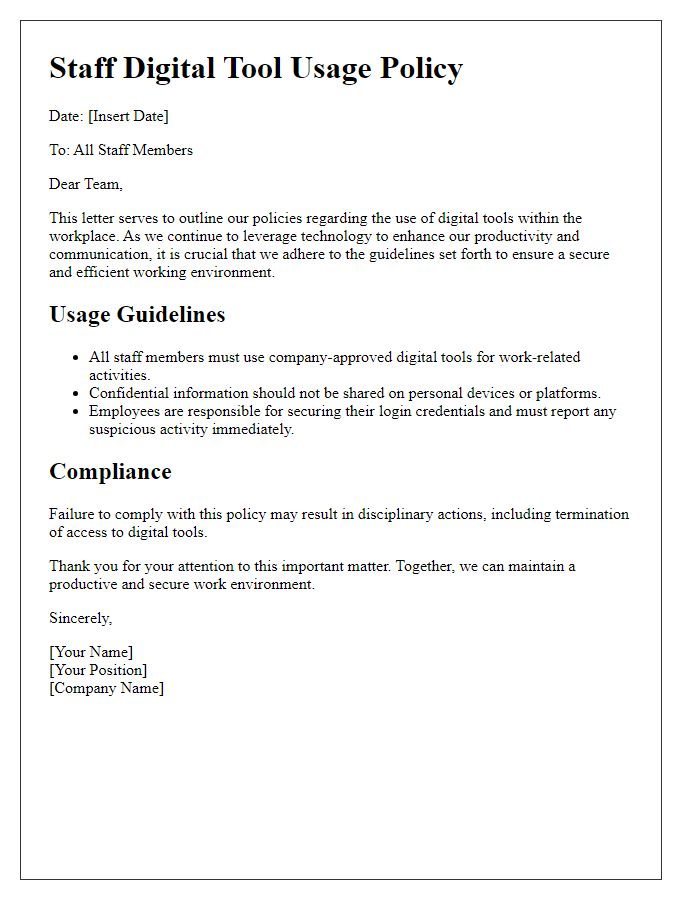
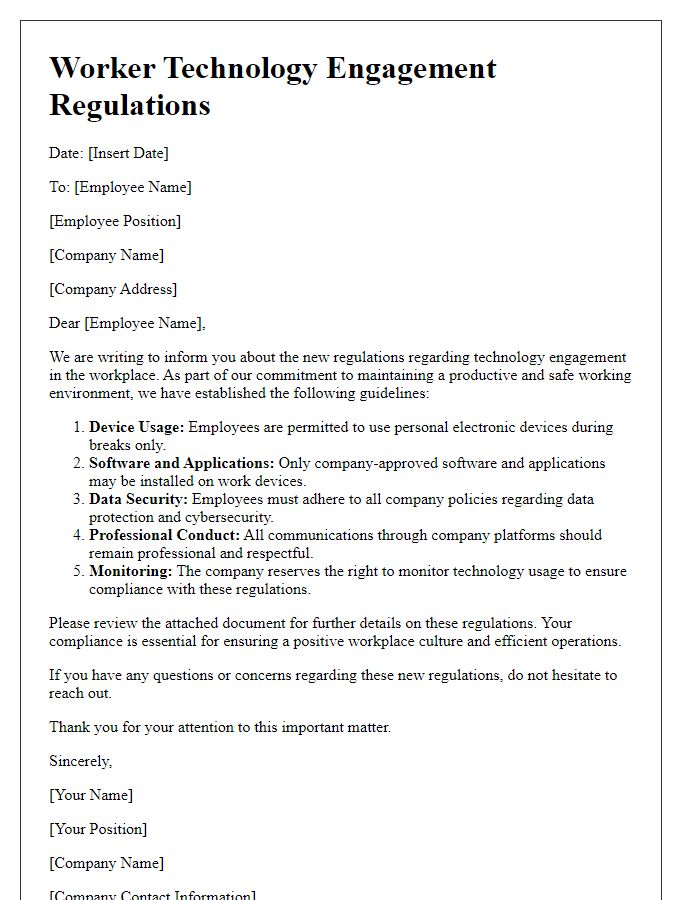
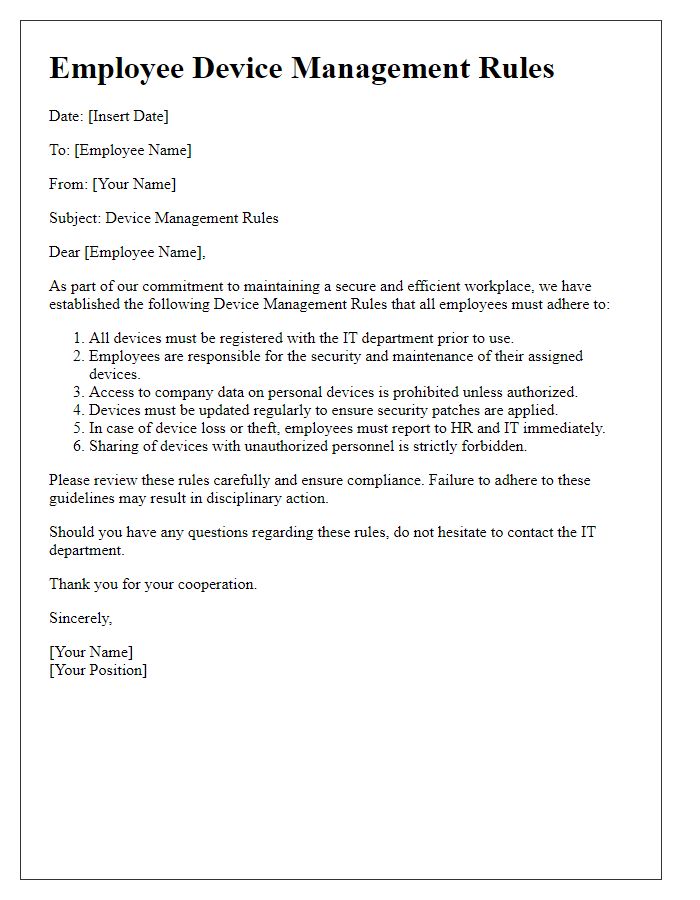
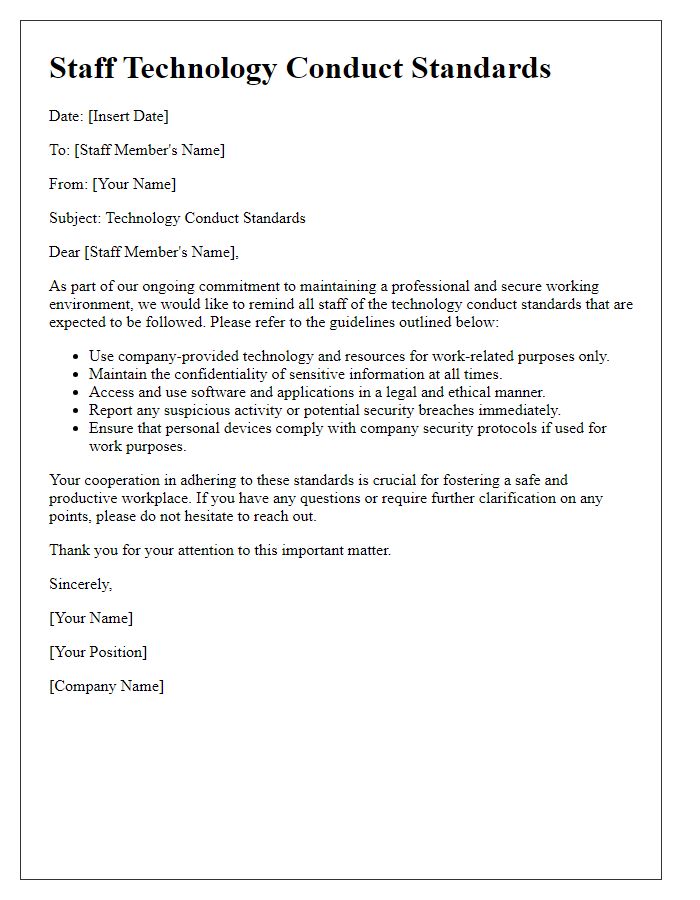
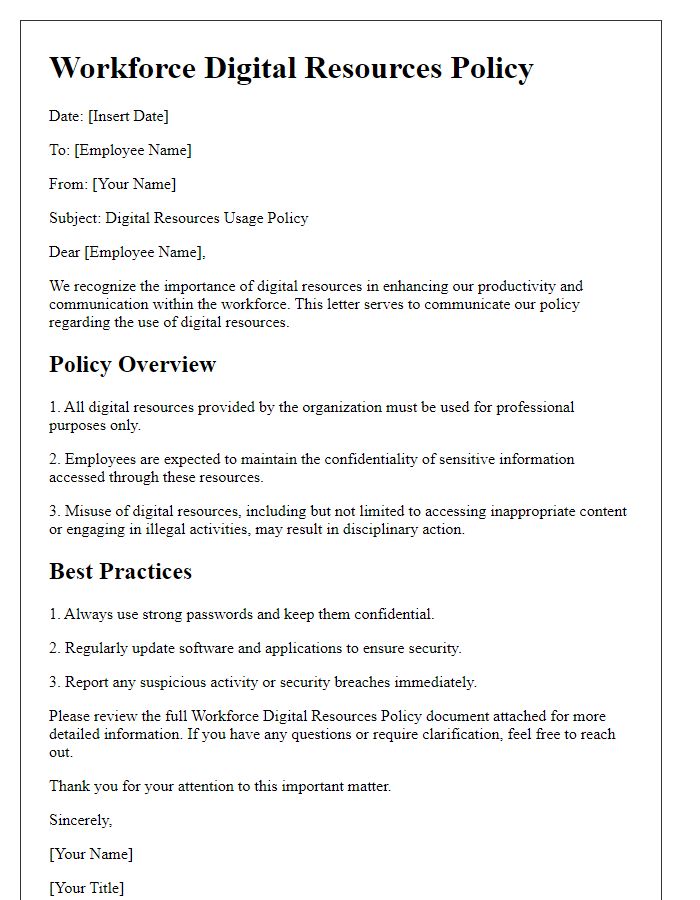
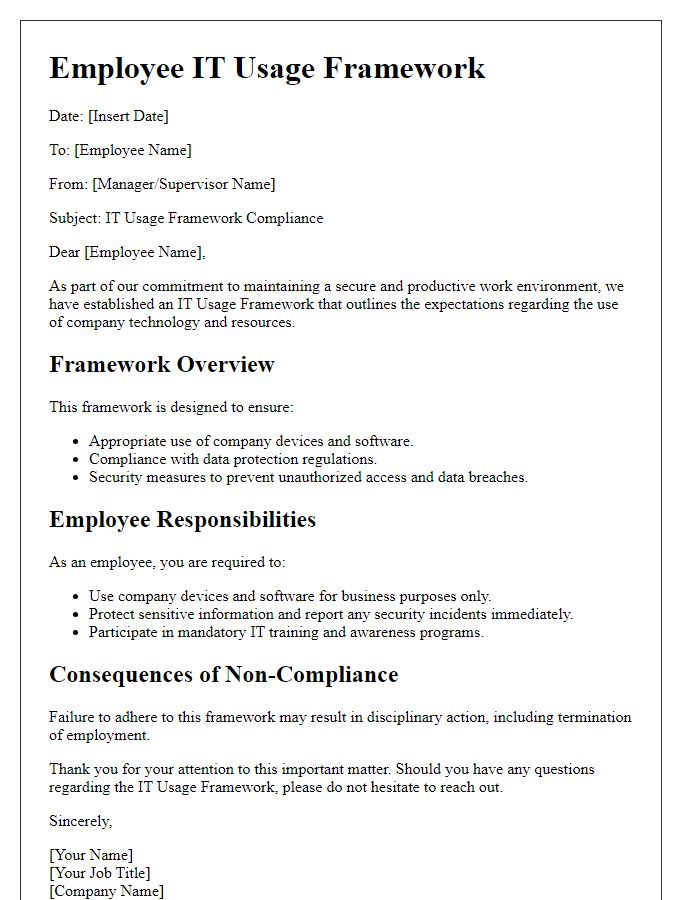
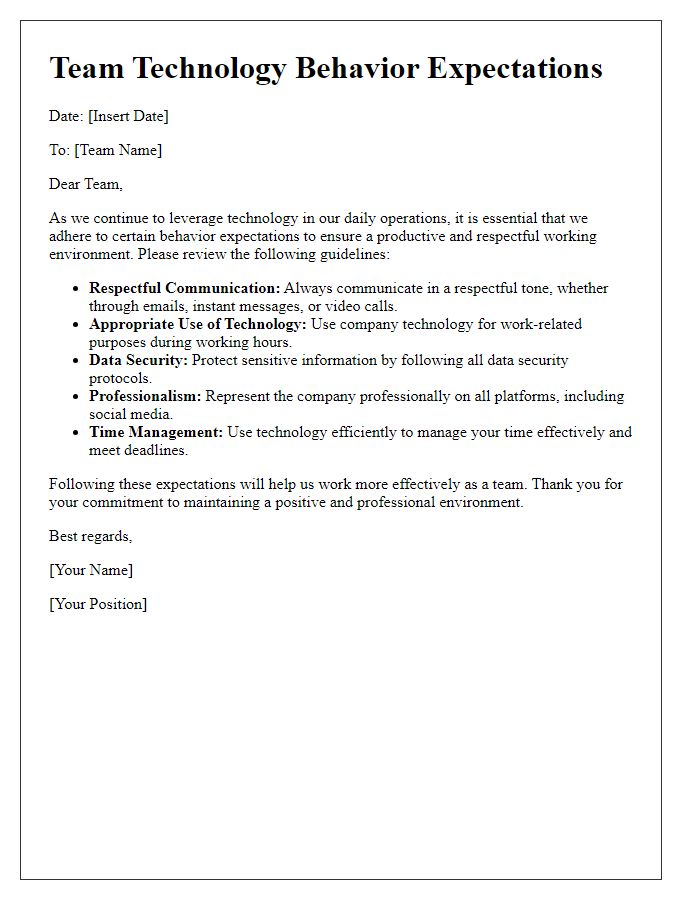
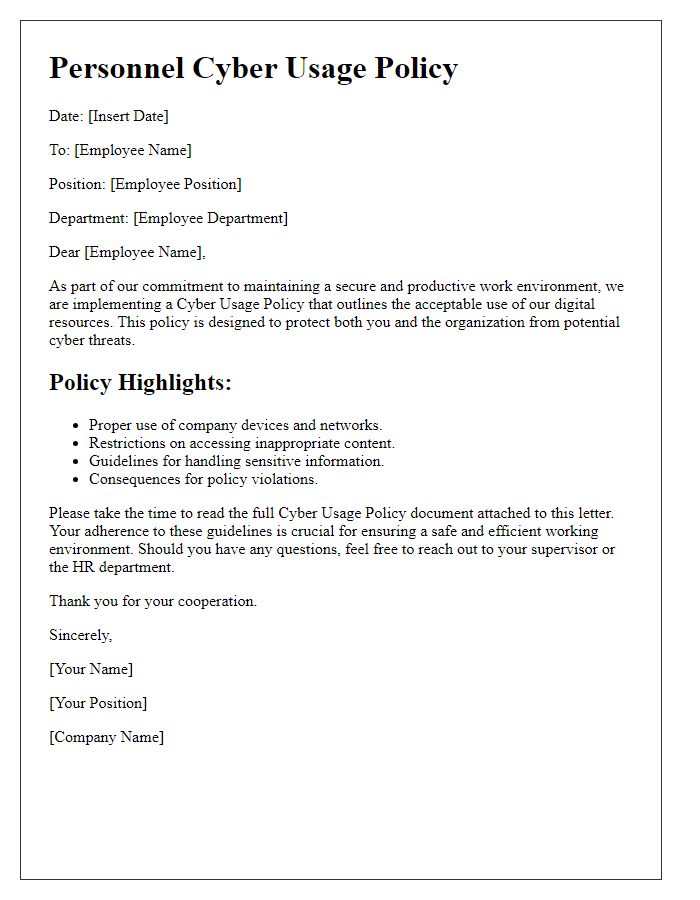
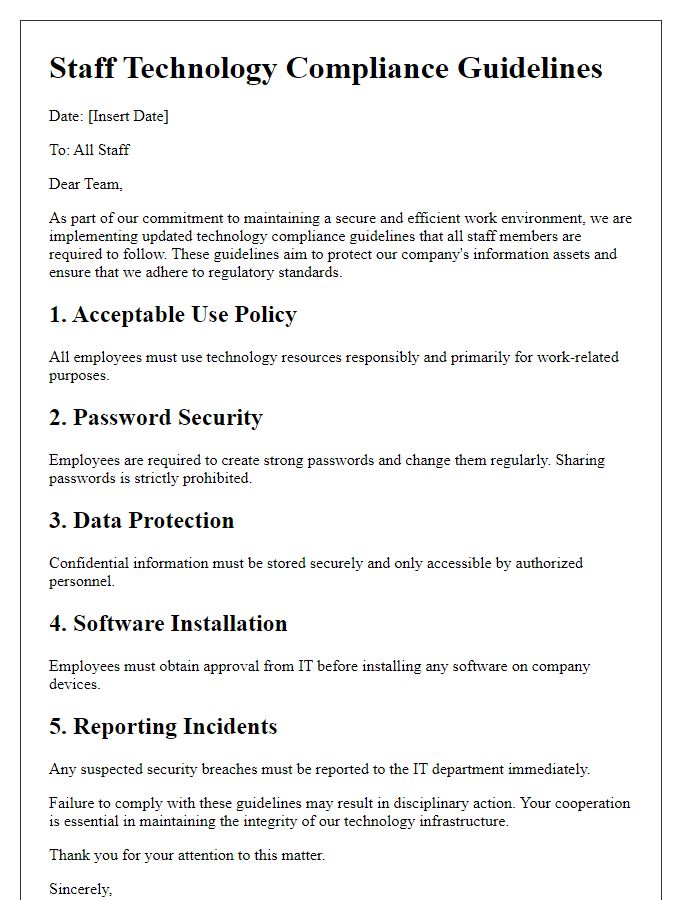


Comments